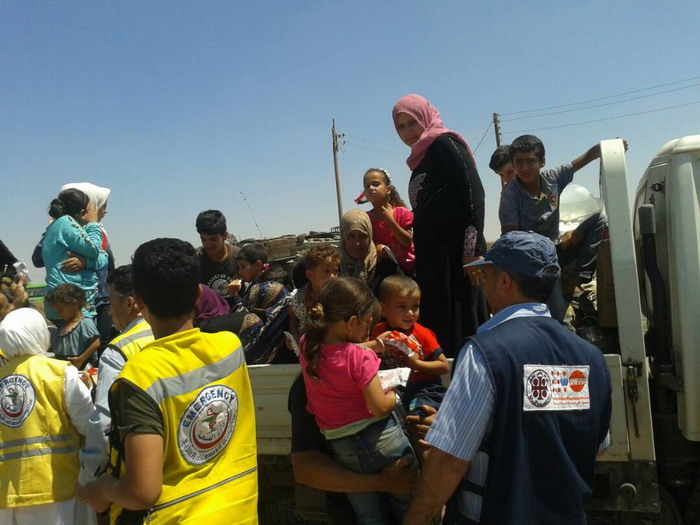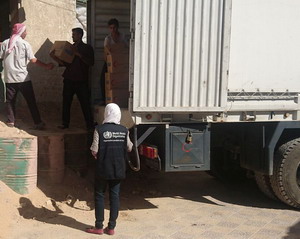 Photo: United Nations Population Fund12 July, 2018 – The World Health Organization (WHO) today called for the protection of health facilities and increased access to southern Syria, where the recent hostilities have left over 210 000 people displaced and in need of urgent health services. Up to 160 000 displaced Syrians currently seeking safety in Quneitra are inaccessible to health partners, raising concerns for their health.
Photo: United Nations Population Fund12 July, 2018 – The World Health Organization (WHO) today called for the protection of health facilities and increased access to southern Syria, where the recent hostilities have left over 210 000 people displaced and in need of urgent health services. Up to 160 000 displaced Syrians currently seeking safety in Quneitra are inaccessible to health partners, raising concerns for their health.
“People in Dar’a and Quneitra are waiting for the humanitarian community to reach them with urgently needed aid and we cannot let them down. Access must be granted,” said Dr Michel Thieren, WHO’s Regional Emergencies Director. “We call on all parties to open the door to people in southern Syria and allow the safe delivery of medicines and medical items they need, and to grant severely injured patients safe passage to hospitals outside the area that can save their lives.”






 14 June, 2018, Damascus, Syria – With support from the World Health Organization (WHO), Al Moadamya primary health care centre in rural Damascus, Syria, has reopened after extensive rehabilitation made possible by a generous donation from the United Kingdom’s Department for International Development (DFID).
14 June, 2018, Damascus, Syria – With support from the World Health Organization (WHO), Al Moadamya primary health care centre in rural Damascus, Syria, has reopened after extensive rehabilitation made possible by a generous donation from the United Kingdom’s Department for International Development (DFID).